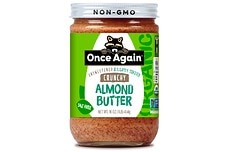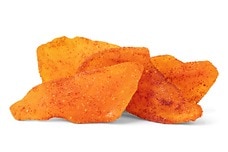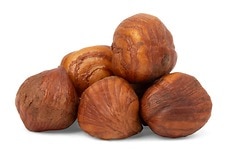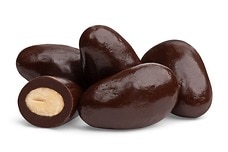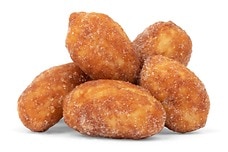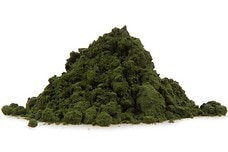Food & Snack Sources of Vitamin E
Vitamin E is a vital compound that is necessary for the human body to grow and develop normally. It is primarily responsible for its role in the metabolic processes within the body as well as its role in keeping the immune system strong. According to the National Institutes of Health ([NIH], 2016a), vitamin E occurs naturally in eight forms, including alpha-, beta-, gamma- and delta-tocopherol. Alpha-tocopherol, however, is the only form that is recognized as being able to meet the needs of humans.
Vitamin E Benefits
Free radicals can cause a great deal of damage to the body, potentially contributing to the development of cardiovascular disease and cancer. As a fat-soluble antioxidant, vitamin E helps quell the formation of a particular type of the radicals, reactive oxygen species (ROS). ROS are formed by the body when it converts food to usable energy. Vitamin E limits the production of ROS in select circumstances, which researchers believe may potentially help prevent the onset of chronic diseases (NIH, 2016a).
Food Sources of Vitamin E
The list of food sources of vitamin E is long and centers on nuts, seeds, fruits and vegetables. Vegetable oils, such as soybean, safflower and sunflower, as well as nuts and seeds, like peanuts, peanut butter and sunflower seeds, are among the best sources (NIH, 2016b). Just one tablespoon of wheat germ oil, for example, contains 100 percent of the Daily Value for the vitamin – or 20.3 milligrams. Other important sources of vitamin E include fortified cereals and leafy green vegetables; although, most Americans get the bulk of their vitamin E from sources such as vegetable oils like soybean, canola and corn (NIH, 2016a).
Vitamin E Deficiency
A deficiency in vitamin E among Americans is rare. When it does occur, it is often linked to other health conditions, such as diseases that make it difficult for the body to absorb fat. These conditions increase the need for vitamin E such that more of the nutrient must be ingested. Examples of these conditions include cystic fibrosis and Crohn’s disease.
Vitamin E supplements often contain amounts of this element that are far higher than the Recommended Daily Allowance (RDA). As a result, people who take blood thinners and other types of medications could be harmed by taking supplemental vitamin E. Caution should be exercised and a physician's advice should be sought when considering taking supplements containing the vitamin (NIH, 2016b).
Recommended Recipes
There are many foods that provide vitamin E and, as stated, most Americans face no potential deficiency of the vitamin. As such, we’ve focused on recipes that provide not only this nutrient, but also those that contribute to a well-balanced and complete diet.
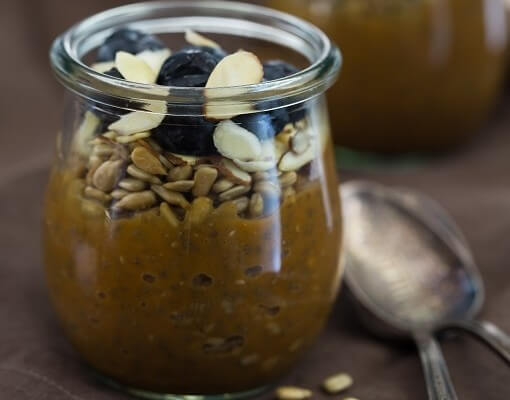
Pumpkin Chia Seed Pudding Recipe
A brilliant way to start the day, this delectable pudding blends potent sources of vitamin E in the forms of almonds and sunflower seeds. It’s also a source of vitamin A and essential minerals like zinc and calcium!
Ingredients: Milk, pumpkin puree, chia seeds, maple syrup, pumpkin spice, sunflower seeds, sliced almonds, fresh blueberries.
Total Time: 10 minutes
| Yield: 4 servings
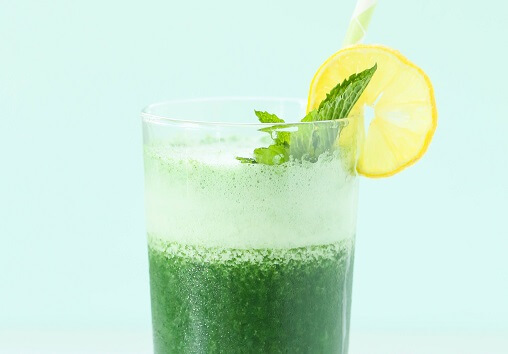
Spirulina Smoothie Recipe
Spirulina and spinach both supply a source of vitamin E in this scrumptious beverage which offers a tart taste and an abundance of other nutrients to make it a healthy choice for anytime.
Ingredients: Spirulina, banana, fresh spinach, apple juice, crushed ice, lemon juice.
Total Time: 2 minutes
| Yield: 2 smoothies
Healthy Snack Recommendations
Adding vitamin E to your diet is simple with these scrumptious snacks. Discover delicious sources of the nutrient with the recommendations from our registered dietitian below!
Healthy Eating
- Healthy Highlights
- 5 Uses for Cacao Powder
- 5 Ways to Eat Farro
- 6 Best Gluten-Free Foods
- Alcohol and the Body
- Almond Flour Recipes
- Anti-Aging Superfoods
- Beat the Afternoon Slump
- Benefits of a Plant-Based Diet
- Benefits of Baobab
- Benefits of Cashews
- Benefits of Coconut Oil for Hair
- Benefits of Coconuts
- Benefits of Dates
- Benefits of Fenugreek
- Benefits of Garcinia Cambogia
- Benefits of Goji Berries
- Benefits of Kale Chips
- Benefits of Monk Fruit Sweetener
- Benefits of Peanuts
- Benefits of Pecans
- Benefits of Pistachios
- Benefits of Pumpkin Seeds
- Benefits of Spelt Flour
- Benefits of Steel Cut Oats
- Benefits of Sunflower Seeds
- Benefits of Tiger Nuts
- Benefits of Turmeric
- Benefits of Walnuts
- Benefits of Wheatgrass
- Best Food Fads
- Cacao vs Cocoa
- Caffeine-Free Energy Foods
- Chocolate That's Good for You
- Diet vs. Exercise
- Fat Burning Foods
- Food Myths Debunked
- Foods for Bone Density
- Foods for Colon Health
- Foods for Healthy Hair
- Foods for Healthy Skin
- Foods to Help Sleep
- Foods to Reduce Stress
- Green Tea Benefits
- Healthy Baking Flours
- Heart Healthy Habits
- High Protein Health Risks
- How to Boost Your Metabolism
- How to Lose Weight While Aging
- How to Throw a Vegan BBQ
- Kaniwa vs Quinoa
- Little Health Foods
- Low-Carb: Fad or Friend?
- Making Healthier Desserts
- Mediterranean Diet Meal Plan
- Natural Beauty Products
- Nuts for Weight Loss
- Preparing Vegan Meals
- Preventing Muscle Degeneration
- Rare Superfoods
- Reduce Sugar Intake
- Save Time By Going Vegan
- Smarter Snack Swaps
- Smoothie Ingredients
- Soy Protein vs Whey Protein
- Starting a Plant-Based Diet
- Steel Cut vs Rolled Oats
- Sugar Substitutes
- Vegan Proteins
- Vegan Substitutions for Fall Recipes
- Why Go Vegan
- Healthy Meals
- Healthy Recipes
- Sports Nutrition
- Nutrition and Special Diets
- 21 Day Fix
- 5 Popular Diet Similarities
- Alkaline Diet
- Anti-Inflammatory Diet
- Calorie Counting
- Carb Cycling Diet
- Celiac Disease
- Cholesterol
- Clean Eating
- Crohn's Disease
- DASH Diet
- Detox Diet
- Diabetes
- Diabetes Diet
- Diet Pill Dangers
- Fat Burning Foods
- Gluten-free Diet
- Glycemic Index
- Heart Health
- High Blood Pressure Diet
- High Fiber Foods
- How to Eat Healthy
- How to Lower Blood Pressure
- Hypertension
- IBS Diet
- Ketogenic Diet
- Liquid Diet
- Low GI Foods
- Low-Carb Diet and Foods
- Low-Fat High-Carb Diet
- Mediterranean Diet
- Mediterranean Diet Foods
- Military Diet
- Nutrition Labels Explained
- Paleo Diet
- Raw Food Diet
- Superfoods
- Sustainable Weight Loss
- Thrive Diet
- Vegan Diet
- Vegetarian Diet
- Weight Loss Shakes
- Whole30
- Vitamins, Minerals & Nutrients

